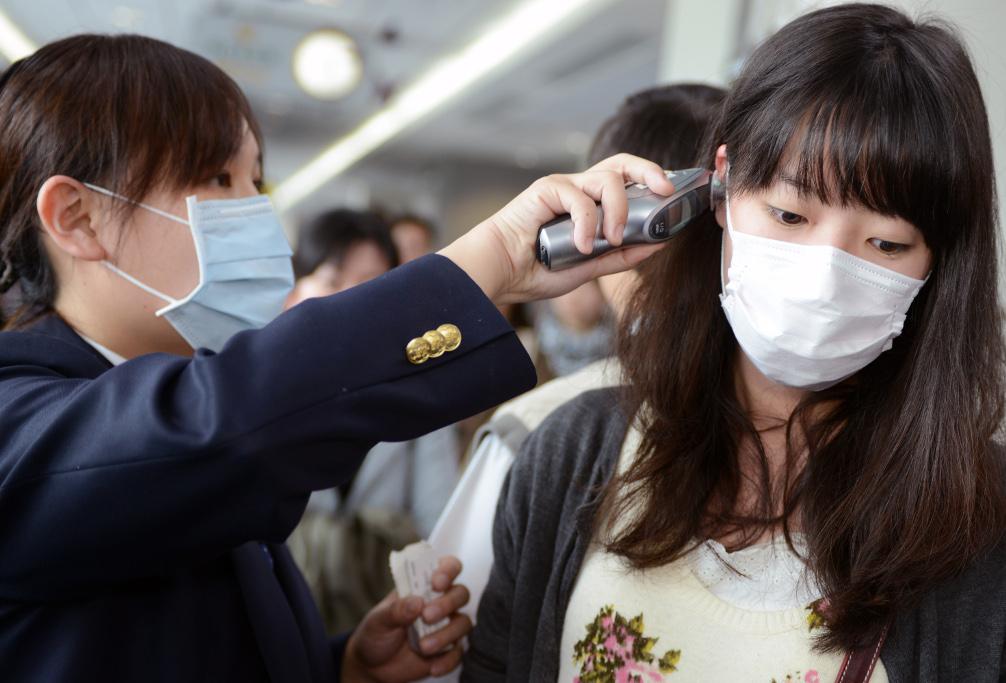China and neighbors quell spread of new bird flu
A passenger has her temperature checked by a Centers for Disease Control staff member at the entrance of Sungshan Airport in Taipei on April 4, 2013.
There have been 21 confirmed cases of people infected with the H7N9 strain of avian influenza in China, according to the World Health Organization, including six deaths.
Chinese authorities in April stepped up efforts to identify those potentially infected, and nearby countries are carefully monitoring the people and poultry they allow inside their borders. Japan, Taiwan, Vietnam and Hong Kong have all taken measures.
The US Centers for Disease Control and Prevention is working on a vaccine “only as a precaution,” a CDC spokesman told The New York Times.
More from GlobalPost: Not all news about bird flu is bad
So far, there has been no evidence of human-to-human transmission of the H7N9 strain, according to the CDC, but Chinese authorities are nevertheless keeping track of the health of more than 530 people who had been in contact with those confirmed to have the virus.
Though the virus has seemingly only been contracted from birds, this presents its own challenges. Birds display less severe symptoms of H7N9 than humans, so they must be tested to detect the virus.
Every day, reporters and producers at The World are hard at work bringing you human-centered news from across the globe. But we can’t do it without you. We need your support to ensure we can continue this work for another year.
Make a gift today, and you’ll help us unlock a matching gift of $67,000!
